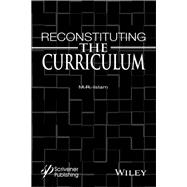- ISBN: 9781118472897 | 1118472896
- Cover: Hardcover
- Copyright: 12/9/2013
The university curriculum introduced in the post-renaissance era, dominated by doctrinal philosophy, is based on 'learning' or 'skill development', suitable for creating a 'learned' society that would eventually serve the Establishment. This curriculum has been promoted as the only form suitable for the modern education system. It has introduced tremendous amount of tangible advancement in all fields of the structured education system. These tangible gains are then promoted as 'knowledge'. This has created confusion between education (acquiring knowledge) and learning, training or skill development. This book aims at clarifying the difference between the two. It is shown that the current curriculum is not conducive to increasing knowledge because it is based actually on consolidating pre-conceived ideas that are either passed on from previous generations or gained through personal experiences. In most cases, this mode of cognition will not create a pathway for gaining knowledge that is closer to discovery of the truth. The term 'education', on the other hand, always meant to be a process of 'bringing forth' one's inherent qualities and unique traits that are both necessary and sufficient for increasing one's knowledge. This book presents a truly knowledge-based curriculum and shows the divergence between the knowledge-based curriculum and the learning- or training-based curriculum in the knowledge space. It is shown that the two curricular systems demonstrate their diverging natures by both their sources and the final outcomes. Examples of outcomes are given from various disciplines, ranging from science and engineering to philosophy and law. Finally, advantages of the new curriculum are demonstrated, both in terms of acquiring knowledge and preventing current problems, such as technological disasters, global injustice, and environmental destruction. Also presented is the way the new curriculum can eliminate some of the common problems with the currently used curriculum, such as plagiarism, low retention in classrooms, non-representative grading, and others. This book shows how the new curriculum is appealing for both the short-term and the long-term.






